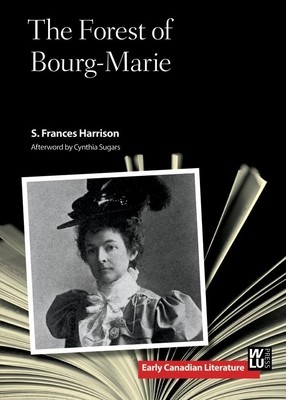
- We will send in 10–14 business days.
- Author: S Frances Harrison
- Publisher: Wilfrid Laurier University Press
- ISBN-10: 1771120290
- ISBN-13: 9781771120296
- Format: 12.3 x 18 x 0.8 cm, minkšti viršeliai
- Language: English
- SAVE -10% with code: EXTRA
Reviews
Description
In The Forest of Bourg-Marie, originally published in 1898, Toronto author and musician S. Frances Harrison draws together a highly mythologized image of Quebec society and the forms of Gothic literature that were already familiar to her English-speaking audience. It tells the story of a fourteen-year-old French Canadian who is lured to the United States by the promise of financial reward, only to be rejected by his grandfather upon his return. In doing so, the novel offers a powerful critique of the personal and cultural consequences of emigration out of Canada.
In her afterword, Cynthia Sugars considers how The Forest of Bourg-Marie reimagines the Gothic tradition from a settler Canadian perspective, turning to a French-Canadian setting with distinctly New-World overtones. Harrison's twist on the traditional Gothic plotline offers an inversion of such Gothic motifs as the decadent aristocrat and ancestral curse by playing on questions of illegitimacy and cultural preservation.
EXTRA 10 % discount with code: EXTRA
The promotion ends in 21d.23:53:17
The discount code is valid when purchasing from 10 €. Discounts do not stack.
- Author: S Frances Harrison
- Publisher: Wilfrid Laurier University Press
- ISBN-10: 1771120290
- ISBN-13: 9781771120296
- Format: 12.3 x 18 x 0.8 cm, minkšti viršeliai
- Language: English English
In The Forest of Bourg-Marie, originally published in 1898, Toronto author and musician S. Frances Harrison draws together a highly mythologized image of Quebec society and the forms of Gothic literature that were already familiar to her English-speaking audience. It tells the story of a fourteen-year-old French Canadian who is lured to the United States by the promise of financial reward, only to be rejected by his grandfather upon his return. In doing so, the novel offers a powerful critique of the personal and cultural consequences of emigration out of Canada.
In her afterword, Cynthia Sugars considers how The Forest of Bourg-Marie reimagines the Gothic tradition from a settler Canadian perspective, turning to a French-Canadian setting with distinctly New-World overtones. Harrison's twist on the traditional Gothic plotline offers an inversion of such Gothic motifs as the decadent aristocrat and ancestral curse by playing on questions of illegitimacy and cultural preservation.


Reviews